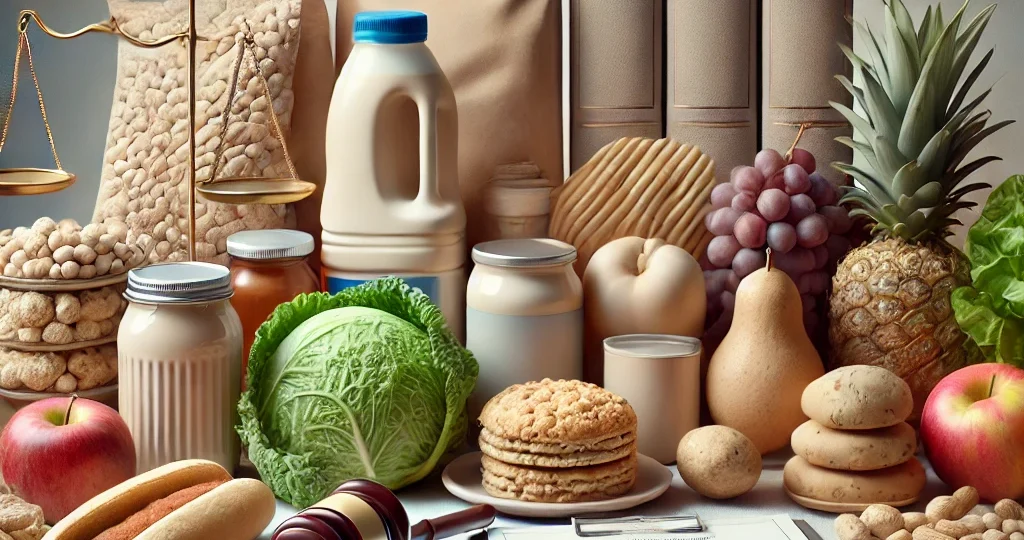
In a surprising development that has left both political observers and public health advocates abuzz, Robert F. Kennedy Jr. is being floated as a potential pick for Secretary of Health and Human Services in a second Donald Trump administration. Known for his controversial views on vaccines, Kennedy also has a long history of advocating for cleaner, healthier food systems. His past commentary on eliminating harmful chemicals like yellow dye, glyphosate, and artificial additives from the American food supply could signal major shifts in food policy if he were to assume this role.
A Vision for a Healthier America
Kennedy has long been vocal about the negative impact of chemicals in our food, linking them to rising rates of chronic illnesses such as obesity, diabetes, and cancer. In speeches and interviews, he has criticized regulatory agencies for what he perceives as lax oversight of dangerous ingredients. His advocacy extends to calling for the removal of synthetic dyes, preservatives, and pesticides—substances commonly found in processed foods.
This focus aligns with his broader vision of “making America healthy again,” a mantra he has used to emphasize the importance of addressing systemic health challenges through dietary and environmental reforms. If appointed, Kennedy could use the HHS platform to pursue sweeping changes to food regulation, potentially transforming the industry.
Key Ingredients in the Crosshairs
- Artificial Dyes: Chemicals like Yellow No. 5 and Red No. 40, commonly used to enhance the appearance of processed foods, have been linked in some studies to behavioral issues in children and other health concerns. Kennedy has called for their ban, citing stricter regulations in the European Union as a model for the U.S. to follow.
- Glyphosate: Known commercially as Roundup, this widely used herbicide has faced mounting criticism for its alleged links to cancer and environmental harm. Kennedy has repeatedly called for a reevaluation of its use in agriculture and food production.
- Preservatives and Additives: Ingredients like sodium benzoate and high-fructose corn syrup could also face scrutiny. Kennedy has argued that these additives contribute to the deterioration of public health by promoting inflammation and metabolic disorders.
Challenges to Reform
Despite the potential for bold changes, Kennedy’s proposals are likely to face significant pushback from powerful food and agricultural lobbies. Companies heavily reliant on these ingredients may argue that banning them could drive up production costs, making food less affordable for consumers. Additionally, any new regulations would require Congressional approval, a potentially contentious process given the polarized political landscape.
Critics also question whether Kennedy’s controversial stance on other health issues, such as vaccines, could overshadow his ability to lead effective reform. His appointment would undoubtedly stir debate about the intersection of science, policy, and public health.
Potential Impact on Consumers and Industry
If Kennedy’s vision were implemented, the changes could lead to a significant shift in consumer options. Healthier, cleaner foods might become more widely available, though they could come at a higher price. The agricultural and processed food industries would likely need to innovate rapidly, exploring alternatives to artificial chemicals and pesticides.
For consumers, this could mean a diet less reliant on processed, chemically-laden foods and a greater emphasis on fresh, organic produce. Such changes could align with growing consumer demand for transparency and health-conscious options.
A Legacy of Advocacy
Kennedy’s appointment would represent a radical departure from traditional HHS leadership, one rooted in his decades-long advocacy for environmental and public health. While some of his ideas may be controversial, his emphasis on addressing systemic health issues through diet and regulation could resonate with a public increasingly aware of the connection between food and health.
Conclusion
As speculation swirls about RFK Jr.’s potential appointment, the prospect of his leadership at HHS raises important questions about the future of food policy in America. Could he bring about a much-needed reckoning with the chemicals and additives in our food? Or will industry resistance and political opposition limit his ability to enact meaningful change? One thing is certain: the conversation about making America healthy again would take center stage, sparking debates that could reshape the way we think about what’s on our plates.
